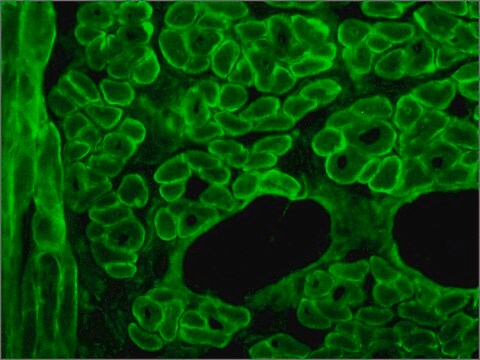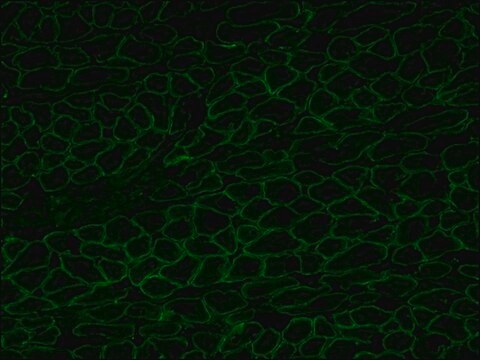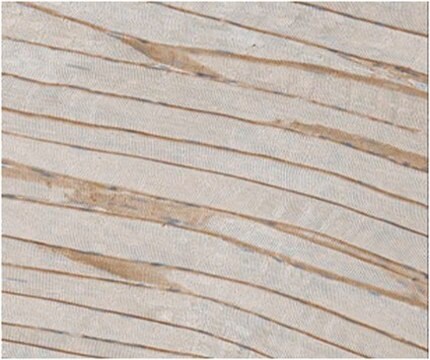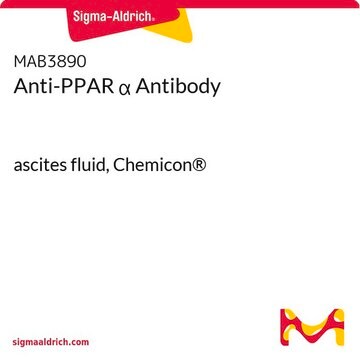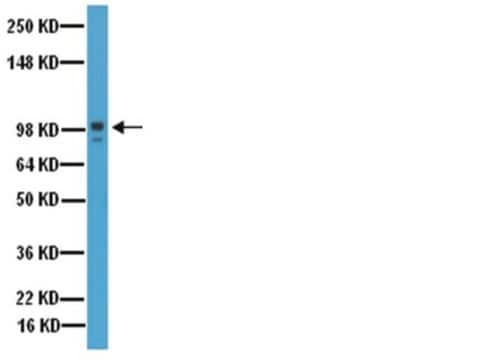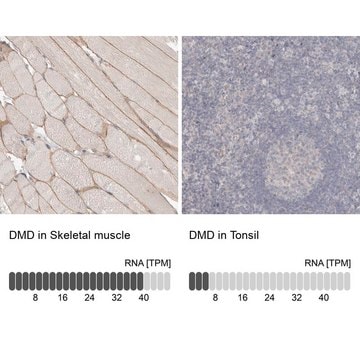Fontos dokumentumok
SAB4200763
Anti-Dystrophin Antibody

mouse monoclonal, MANDRA1
Szinonimák:
Anti-DMD
About This Item
IHC
immunofluorescence: suitable
immunohistochemistry: 10-20 μg/mL using acetone fixed rat tongue frozen sections
Javasolt termékek
Terméknév
Anti-Dystrophin antibody, Mouse monoclonal, clone MANDRA1, purified from hybridoma cell culture
biológiai forrás
mouse
Minőségi szint
antitest forma
purified from hybridoma cell culture
antitest terméktípus
primary antibodies
klón
MANDRA1, monoclonal
Forma
buffered aqueous solution
molekulatömeg
~427 kDa
faj reaktivitás
zebrafish, rat, mouse, human
fejlettebb validálás
independent
Learn more about Antibody Enhanced Validation
koncentráció
~1.0 mg/mL
technika/technikák
immunoblotting: suitable
immunofluorescence: suitable
immunohistochemistry: 10-20 μg/mL using acetone fixed rat tongue frozen sections
izotípus
IgG1
UniProt elérési szám
kiszállítva
dry ice
tárolási hőmérséklet
−20°C
célzott transzláció utáni módosítás
unmodified
Géninformáció
human ... DMD(1756)
Related Categories
Általános leírás
Egyediség
Alkalmazás
- immunohistochemistry
- immunoblotting
- immunofluorescence
- enzyme-linked immunosorbent assay (ELISA)
Biokémiai/fiziológiai hatások
Fizikai forma
Tárolás és stabilitás
Jogi nyilatkozat
Nem találja a megfelelő terméket?
Próbálja ki a Termékválasztó eszköz. eszközt
javasolt
Tárolási osztály kódja
10 - Combustible liquids
Lobbanási pont (F)
Not applicable
Lobbanási pont (C)
Not applicable
Válasszon a legfrissebb verziók közül:
Analitikai tanúsítványok (COA)
Nem találja a megfelelő verziót?
Ha egy adott verzióra van szüksége, a tétel- vagy cikkszám alapján rákereshet egy adott tanúsítványra.
Már rendelkezik ezzel a termékkel?
Az Ön által nemrégiben megvásárolt termékekre vonatkozó dokumentumokat a Dokumentumtárban találja.
Tudóscsoportunk valamennyi kutatási területen rendelkezik tapasztalattal, beleértve az élettudományt, az anyagtudományt, a kémiai szintézist, a kromatográfiát, az analitikát és még sok más területet.
Lépjen kapcsolatba a szaktanácsadással